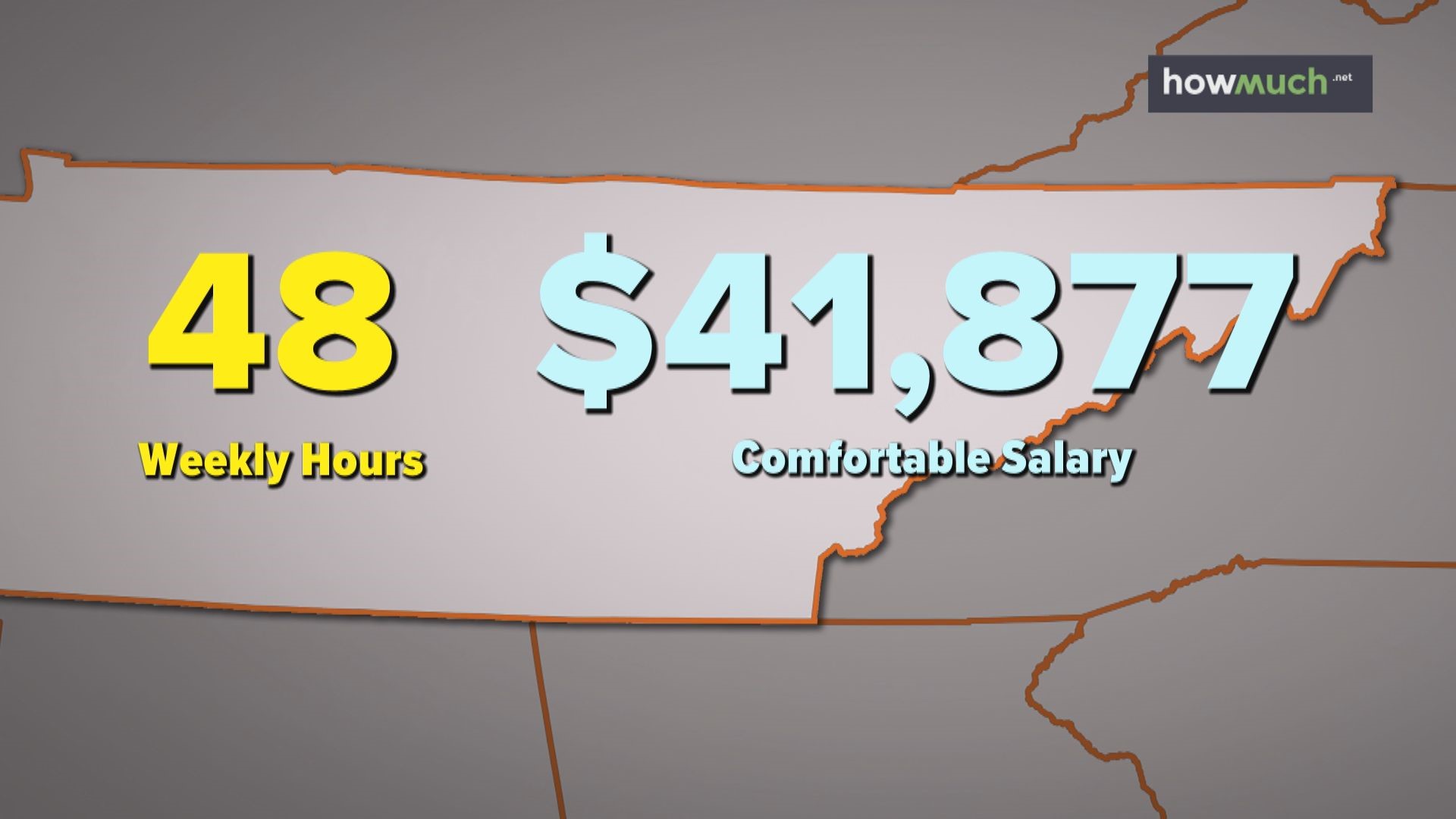KNOXVILLE, Tenn. — Look at the cost of living in every state. Compare that to how much people earn hourly at their jobs. A financial website claims wages for 40 hours of work per week is not enough for average people to live comfortably in any state in the U.S.
The website howmuch.net crunched the numbers provided by the federal government's Bureau of Labor Statistics. The website's report defined living "comfortably" as making 20 percent more than the basic cost of living. It then looked at the median wage for workers in each state and calculated how many hours a person would have to work to earn a comfortable living in their area.
No state's median wage earned 20 percent more than its cost of living, according to the website's report.


For Tennessee, the report claimed a comfortable living required an annual salary of $41,877. If you are paid the state's median wage, you would have to log 48 hours per week to earn that amount in a year.
Making ends meet is a challenge for the average worker anywhere in the country. The good news for Tennesseans is it takes less money to live comfortably here than most of the country.
Tennessee was among the "top five states where it is cheapest to enjoy a comfortable living." The only states with a cheaper cost for a comfortable living were Mississippi, Oklahoma, Arkansas and Kansas.
But people in Arkansas and Mississippi earn lower median wages than people in Tennessee. Living comfortably in those states requires 52 to 53 hours of wages per week.
There are 10 states in the United States where you can earn a comfortable living working fewer hours than Tennessee's 48: Washington, D.C. (44), Minnesota (45), North Dakota (45), Illinois (46), Kansas (46), Michigan (46), Washington (46), Nebraska (47), Ohio (47), and Texas (47).
Washington D.C. pays well and costs a lot. It is the second-most expensive place to live comfortably, behind only Hawaii. The site claimed average workers in Hawaii would have to log 96 hours per week to live comfortably on the state's median wage.
Economist Dr. Bill Fox at the University of Tennessee said the state's annual inflation rate has been relatively low, roughly 2 percent over the last decade. Wages increased at almost the same rate, roughly 3 percent.
Fox said one of the biggest determining factors in earnings is education. Fox said the divide in income potential continues to widen for those who only have a high school education compared to a two-year and four-year degree.
Barber Brandi Jenkins at Western Plaza Barber Shop in Knoxville said she can relate to those who work long hours and still struggle to make ends meet. She was drilled to work hard and how to cut hair from a young age.
"My granddad was an Army barber. He owned his own shop when he got out of the military. I have a lot of family who cut hair and just picked it up as a kid," said Jenkins.
Jenkins and her husband work as many hours as they can.
"He drives a truck and we work hard. We have a mortgage, a car payment, and our youngest daughter is in college," said Jenkins.
Jenkins had a different definition of "comfortable" than the one provided by howmuch.net.
"I would say you are comfortable if you're not having to worry about paying your monthly bills and buying groceries the same week," said Jenkins. She added with a laugh, "I wouldn't know about living comfortably because we don't."
Even with insurance, many people are just one medical emergency from a financial crisis. Jenkins knows that first-hand.
"I had brain surgery in February. So, I was out of work four months. We have a deductible we have to meet. At the hospital, I'm set up on a payment plan and it's a good chunk of change every month."
Her doctors have limited how many hours she is allowed to work. Overtime is not currently an option, so her husband works as many hours as possible to make up for the loss of income while she recovers. Jenkins will work as many hours as she is allowed because she cannot afford to stay at home.
"It's not an option. I have to work," said Jenkins. "And I like my job. I love my work family. And I get to meet different people every day. The people are different and the job itself is different every day. Everybody's hair is different."

